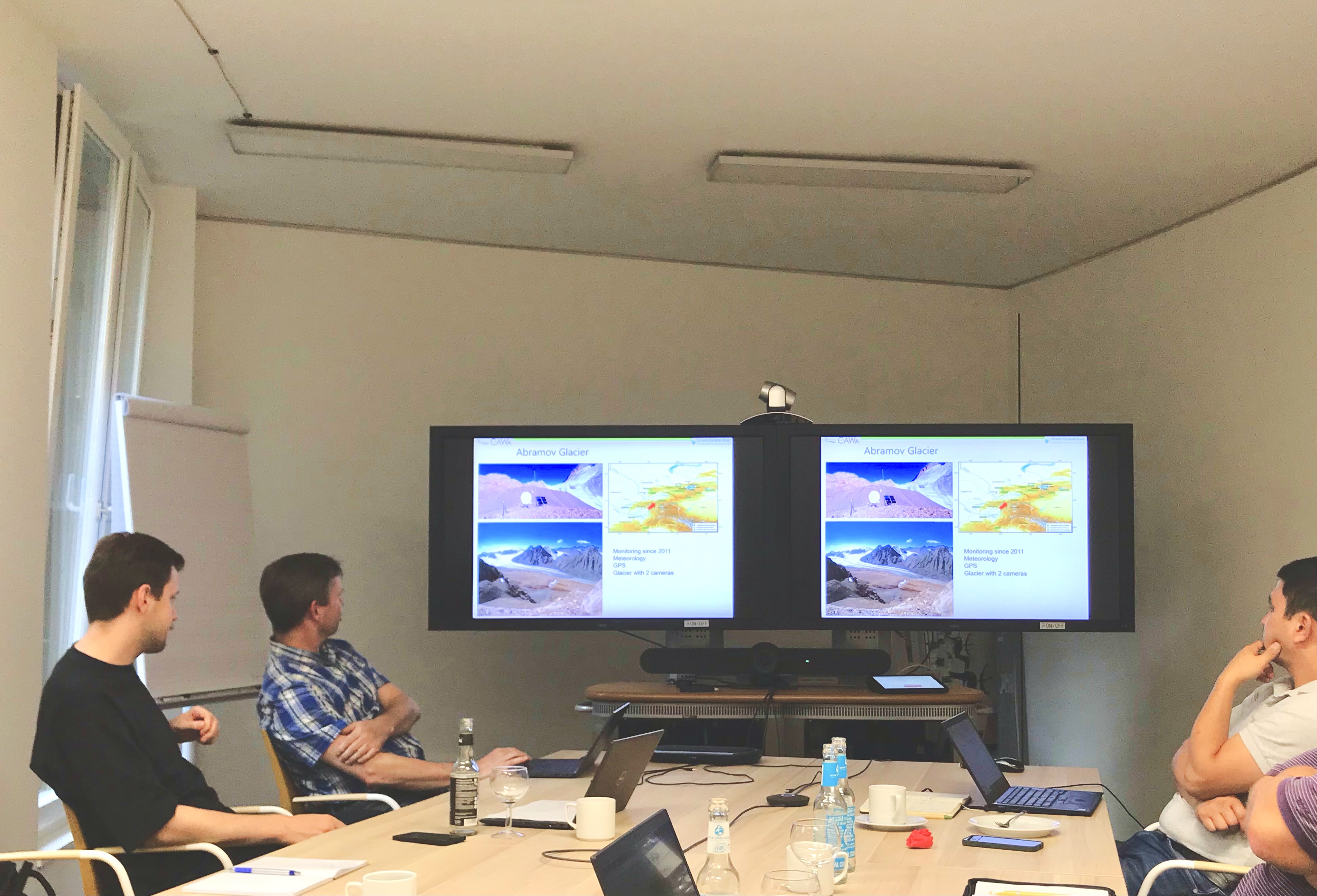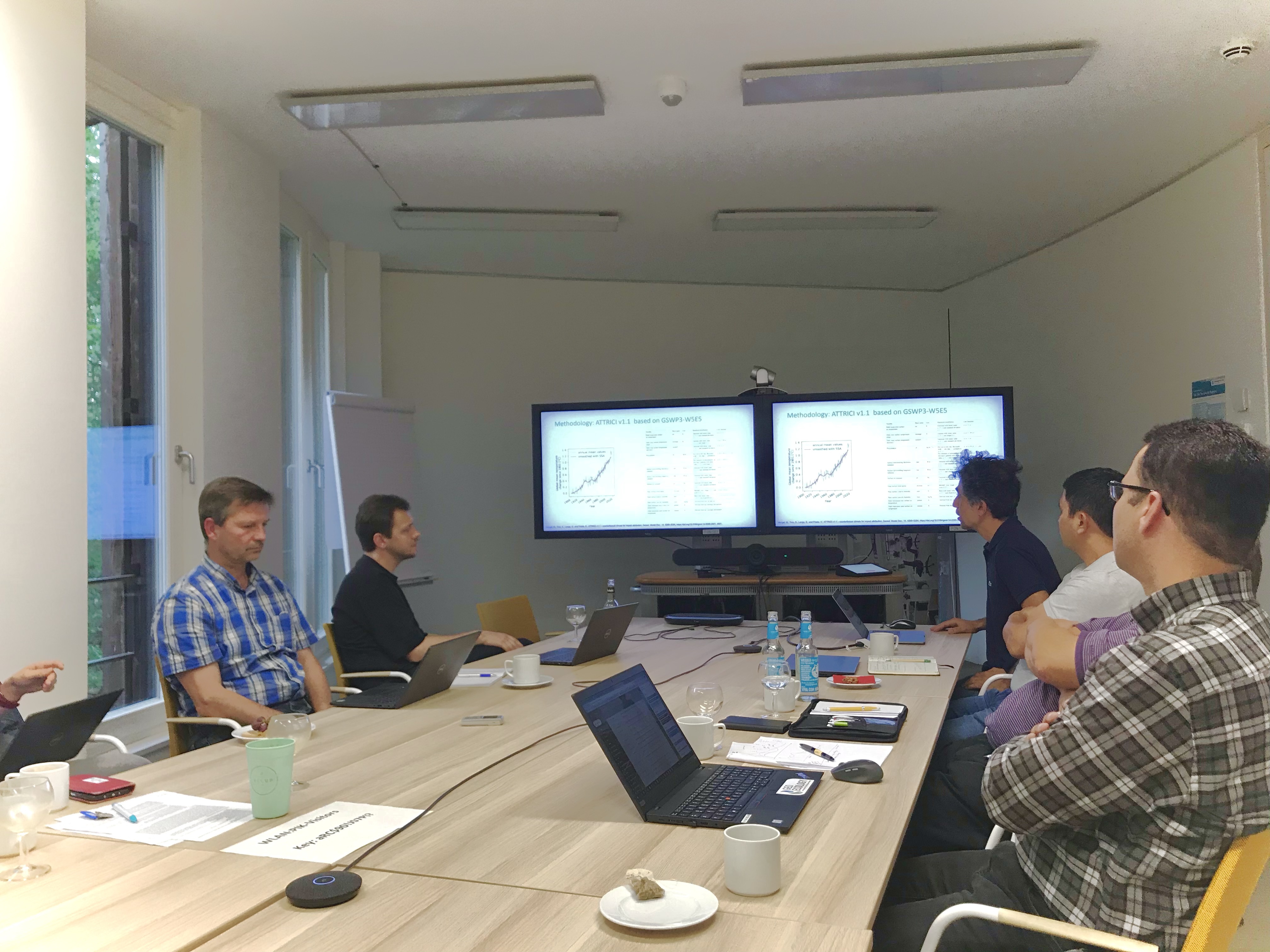
The second annual meeting of the research partner institutions GeoForschungsZentrum (GFZ), Martin Luther University of Halle and Potsdam Institute for Climate Impacts Research (PIK) took place on 7th September 2022 within the framework of the Green Central Asia project. The meeting overviewed the current workflow that has been done from each partner's side within the past year. Partners demonstrated the progress they have achieved on capacity building in the Central Asian region. The consortium was moderated by the team leader of the project, Dr Iulii Didovets. After the demonstration of work progress, the meeting continued with detailed discussion and exchange of ideas for further improvements of the project run.
Dr Muhammad Usman presented on behalf of the Martin Luther University on two capacity events as well as on scientific results. Practical exercises and lectures on spatial data analyses were offered at the 8th Summer School in Almaty, Kazakstan, this year. The Tashkent Workshop, a 3 days capacity building event in Uzbekistan, introduced the participants an interactive platform "Drought map ASB Tool" and "MODSNOW" application. Additionally, the publication of a “Bulletin for decision-makers and politicians”, that presents scientific results in a comprehensible way, was discussed.

GFZ partners presented the work carried out by Dr Tilo Schöne during "Summer in Central Asia" on monitoring glaciers and lakes, tectonics monitoring and meteorology. The monitoring of tectonics was successfully published. Worth mentioning is the completion of 5 river gauges which support the monitoring of lake Issyk Kul volume changes as well as other campaigns such as the ones with Uzhydromet and Tajikhydromet. Najibullah Kakar, offered an update on InSAR Results across Central Asia, which was performed together with Dr Tilo Schöne. The presentation on Afghanistan covered groundwater level detection using GRACE and research done on subsidence causes, using satellite images. Future research perspectives on groundwater levels include volume loss, expansion studies to Central Asia level and the development of risk maps. Dr Abror Gafurov emphasized the importance of further consistent research on snow and glacier monitoring in the study region using remote sensing methods.
The current workflow on snow coverage observation using MODIS and 3 versions of MODSNOW were brought to the attention of the participants. Follow-up studies and modifications on warning systems for avalanches (and their historical reconstruction), along with automatic hydrological forecasts were brought forward.

PIK’s Dr Bijan Fallah presented current research on the "Impact of the recent global warming on extreme weather events in Central Asia" for the climate package of the project. The methodology was discussed by all participants along with the results which demonstrate a significant tendency toward an increasing number of hazardous weather events by the end of the century. Paula Aschenbrenner (PIK) presented on agriculture and provided updates on crop modelling in Kazakhstan. The improvements in model performance were demonstrated and discussed with the participants, raising further suggestions for the research. The closing speech was conducted by Stefanie Wesch, highlighting the most significant results achieved in the workshops on climate security. Attention was brought to the Tashkent water conference in Uzbekistan as well as workshops in Kazakhstan and Tadjikistan this summer, attended by Dr Didovets and Dr Fallah.
Summarizing the day’s results, the scientists had a valuable exchange of ideas, research methods and further ways of interdisciplinary collaboration in Central Asia in the coming year.





